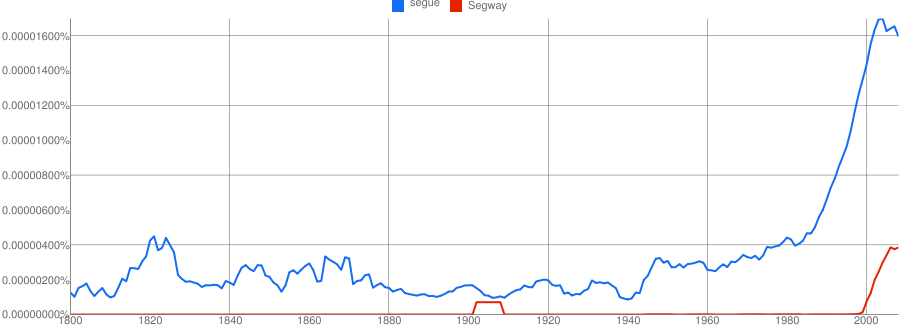For a long time, I used the word segway in relative contentment, as a useful word to mean "to transition to." As in:
We're getting off-topic. Let's segway to the next discussion point, shall we?
Then one day, and to my surprise, I was shocked, after making a comment on somebody's blog, to be haughtily corrected and informed that correct usage was actually segue, which apparently comes by the Italian seguire, meaning "to follow." I was additionally told that segway was a vulgar imitation used by know-nothings, a sort of word like bonafied that instantly revealed one's class and relative ignorance.
Wow! I had little doubt that the use of segway was substatially bolstered by the hype and general pop-cultural awareness of Dean Kamen's famous flop, but back then, I'd always thought he'd fittingly named his vehicle after the word itself, and it was strange to me to learn that the Segway was in fact knowingly named after a corruption.
On the other hand, this is a mistake I continually hear lots of people, even educated people, make — cf. for example, whoever Joel is talking to at the 61st minute of the latest podcast.
So has segway become acceptable as a replacement for segue? Can segue be considered all but dead? To be clear, as this is StackExchange, I'm not looking for, "ooh! I say it this way", and "no, I say it that way!" responses; I'm looking more for quantitative data, usage by established authorities (is the NYRB using segway?), and perhaps discussions from those who have written on this before.

